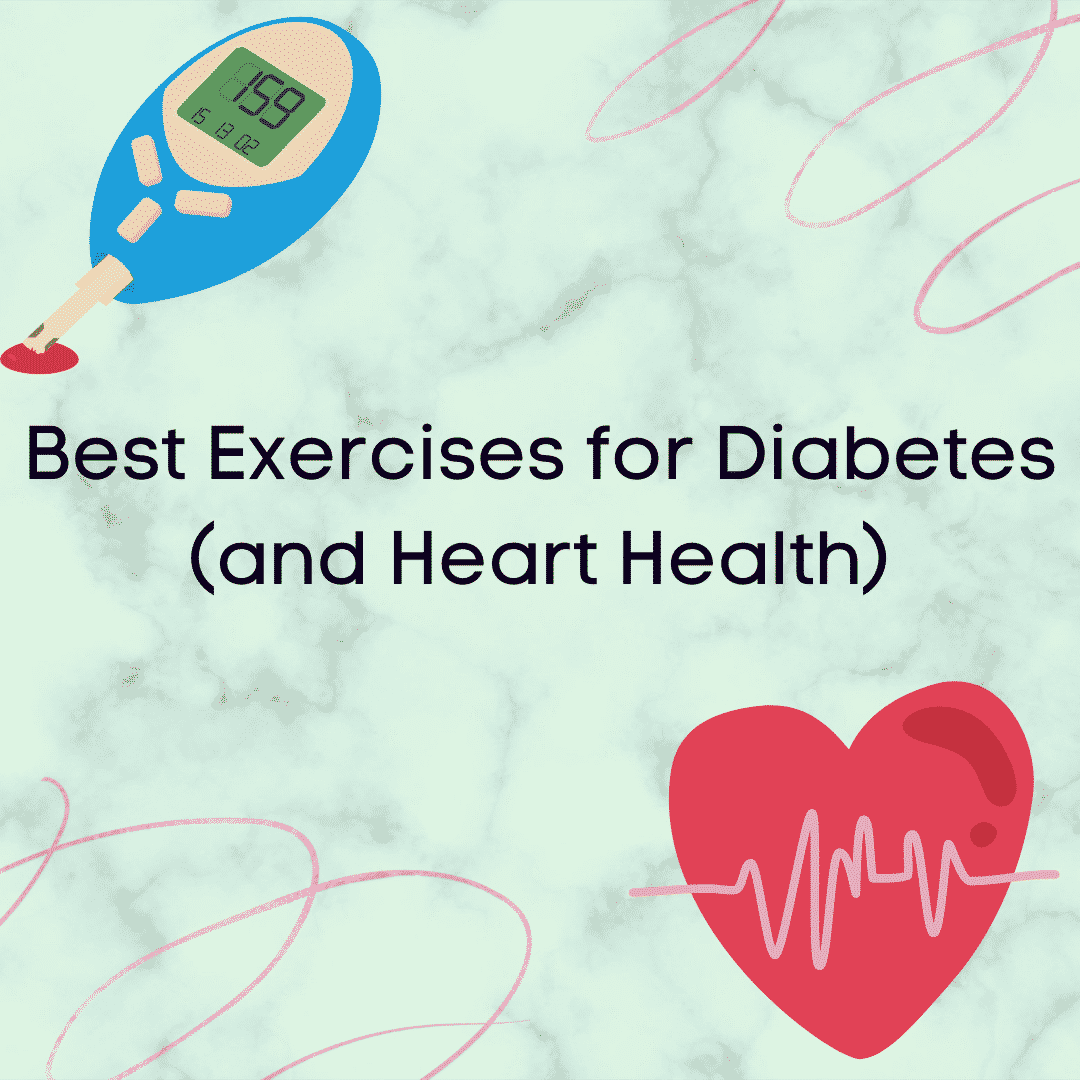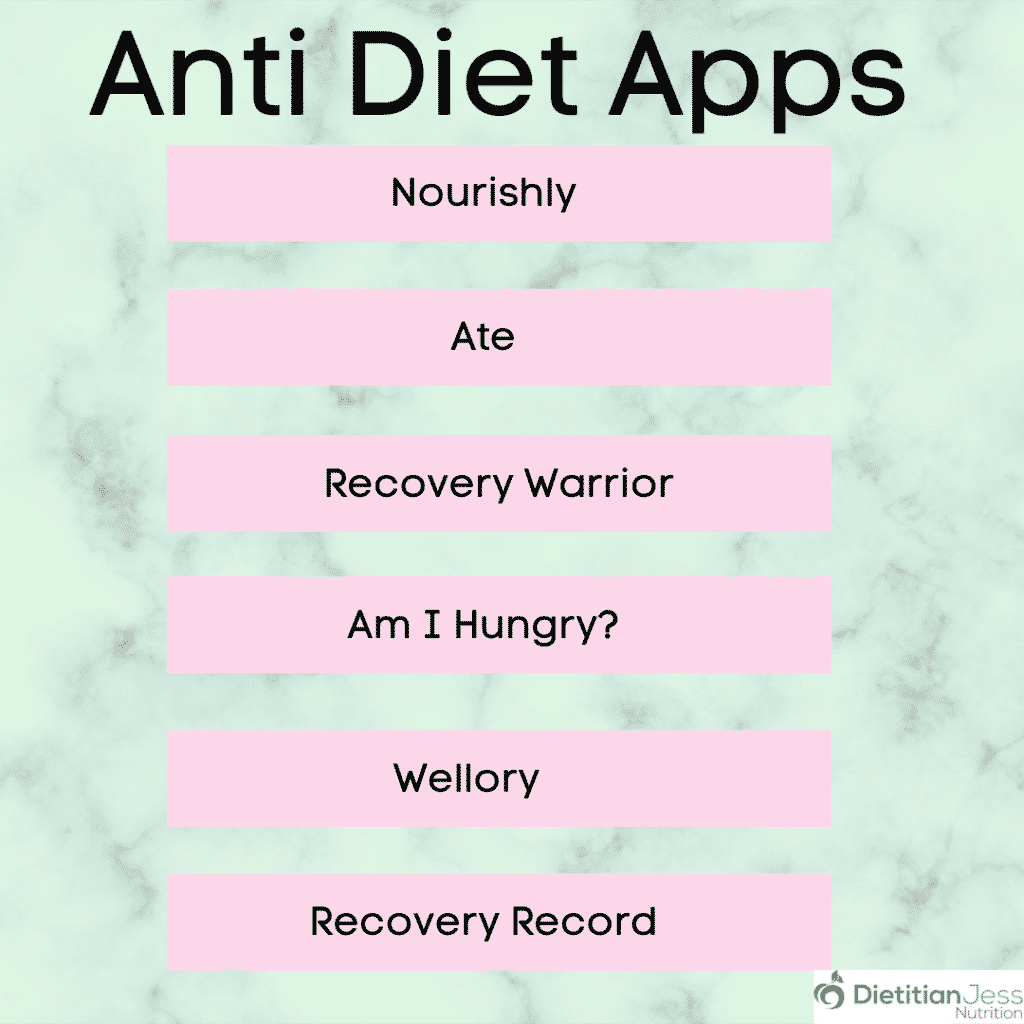
Let’s chat about the best exercises for diabetes and of course the benefits of exercise in diabetes. Since February is National Heart Month and having diabetes puts you at a higher risk for heart disease it’s a great time to learn more and find something that works for you. The Standards of Medical Care in Diabetes recommends getting 150 minutes of moderate-intensity aerobic exercise per week.
Benefits of Exercise in Diabetes (and heart health!)
Disclaimer- I’m not a doctor and you should not attempt a new workout routine without first consulting with YOUR doctor. That being said- most people can start with walking or light stretching and build up from there.
The number one benefit of exercise can lower your blood sugar, during a workout and for up to 24 hours after. Plus, as you do it more, your body becomes better at processing glucose, and your insulin sensitivity increases. I can also improve other distinct target parameters (blood pressure, lipid status or body composition) to a different level in each person.

Best Exercises for Diabetes
Honestly, the best exercise is one you will enjoy so you actually do it. Overall my number one recommendation for most people is walking/yoga since it is low impact and more of a “beginner” level. However, if clients have access to a pool swimming I highly recommend swimming! It’s one of the best full body/low impact workouts and generally
“Getting into shape” first by starting small and gradually building up is always recommended. Many clients tell me their goal is to start going to the gym every weekday. Well that sounds great but if you were going to the gym zero times a week and try to start going 5x/week you will burn out fast. Start week 1 with going once, then next week twice, and so on. By building up slowly that ensures not only safety but making it more sustainable long term.
Exercise Training for Type 2 Diabetes
Motivational support is considered one of the biggest barriers for engaging in regular physical activity. Finding time and starting from scratch are two other issues for getting started. Remember type and intensity of exercise training needs to be adjusted to each person’s characteristics individually to achieve the optimal effect so barriers must be addressed.
If finding time to exercise or acquiring space is an issue, well I’ve got an easy solution. Likewise this type of exercise can help get you started because you build slowly and there are many options for modifications as you go from beginner to advanced. Plus starting out with just 4-8 minutes it’s easier to stay motivated! So what am I talking about….???
Anaerobic exercise burns calories and improves your cardiovascular health, insulin sensitivity and blood glucose management, and unlike aerobic exercise it also builds muscle strength and mass. Weight lifting and/or resistance training is a great place to start. If you already have a good fitness base consider taking it up a notch to HIIT (High Intensity Interval Training).

HIIT
HIIT is a fun and fast way to workout- it is basically cardio and strength combined. It is characterized by intervals of very short but all-out effort “work periods” followed by a “recovery” period.” While it is high impact, it can be done quickly and effectively.
Work intervals should be extremely intense, where you can barely perform controlled breathing. You are pushing your body to it’s max during the work interval & giving it your all out effort. Rate of Perceived Exertion (RPE) on a scale of 1-10 during HIIT should be a 9-10. At the end of the interval, you should be extremely taxed and NEED that recovery interval.
Although improvements of glucose metabolism are observed during moderate intensity endurance exercise, more pronounced effects are seen during more vigorous exercise. Particularly interval exercise, alternating moderate and vigorous walking, may have the most beneficial effects and can be successfully performed.
Roundup of Best HIIT Workouts:
While I’m not a personal trainer or fitness professional I love sharing workouts! Obviously disclaimer again that I’m not a doctor and all that. You can google modifications, change recovery times, or adjust as needed- these are merely just for inspiration.
I personally try to do Tabata 2-3x/week usually only for about 10 minutes- friendly reminder you don’t need an hour to get in an awesome workout. Let me know if you try any of these and be sure to join my email list for new posts, freebies, recommendations, and discounts!
Great general overview of Exercise and Type 2 Diabetes: https://www.ncbi.nlm.nih.gov/pmc/articles/PMC2992225/



